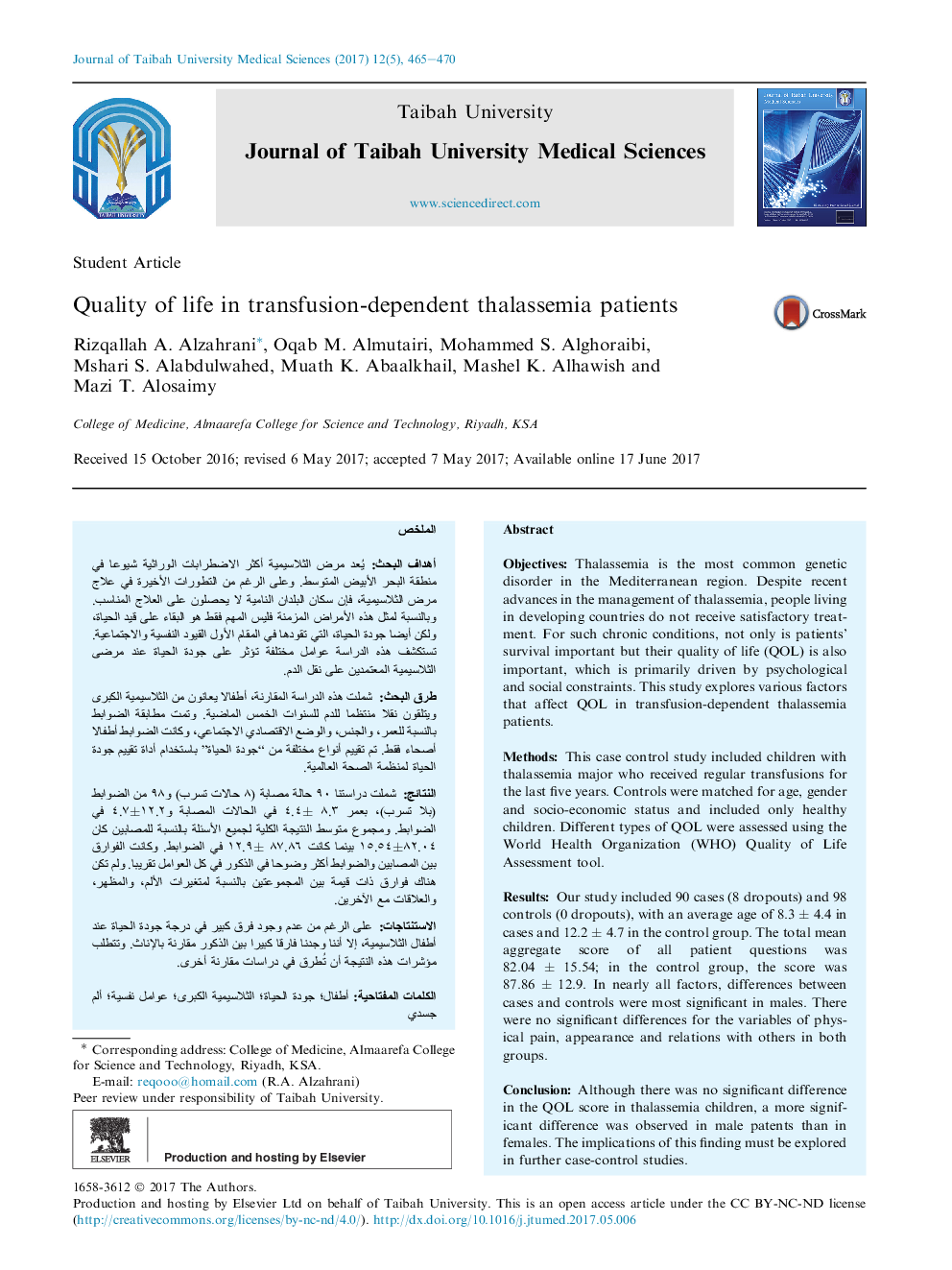| Article ID | Journal | Published Year | Pages | File Type |
|---|---|---|---|---|
| 5680114 | Journal of Taibah University Medical Sciences | 2017 | 6 Pages |
ObjectivesThalassemia is the most common genetic disorder in the Mediterranean region. Despite recent advances in the management of thalassemia, people living in developing countries do not receive satisfactory treatment. For such chronic conditions, not only is patients' survival important but their quality of life (QOL) is also important, which is primarily driven by psychological and social constraints. This study explores various factors that affect QOL in transfusion-dependent thalassemia patients.MethodsThis case control study included children with thalassemia major who received regular transfusions for the last five years. Controls were matched for age, gender and socio-economic status and included only healthy children. Different types of QOL were assessed using the World Health Organization (WHO) Quality of Life Assessment tool.ResultsOur study included 90 cases (8 dropouts) and 98 controls (0 dropouts), with an average age of 8.3 ± 4.4 in cases and 12.2 ± 4.7 in the control group. The total mean aggregate score of all patient questions was 82.04 ± 15.54; in the control group, the score was 87.86 ± 12.9. In nearly all factors, differences between cases and controls were most significant in males. There were no significant differences for the variables of physical pain, appearance and relations with others in both groups.ConclusionAlthough there was no significant difference in the QOL score in thalassemia children, a more significant difference was observed in male patents than in females. The implications of this finding must be explored in further case-control studies.
